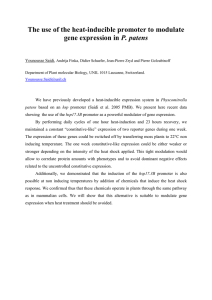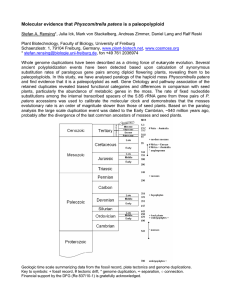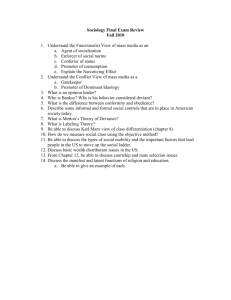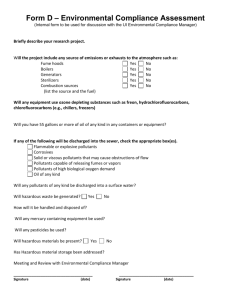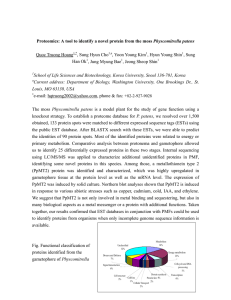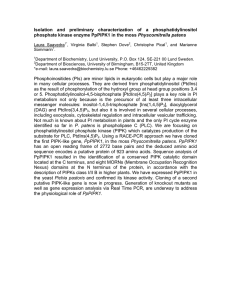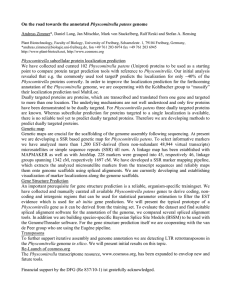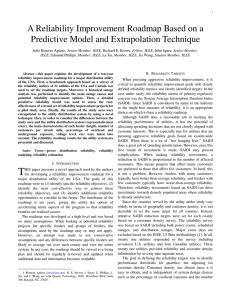Physcomitrella patens organic pollutants
advertisement
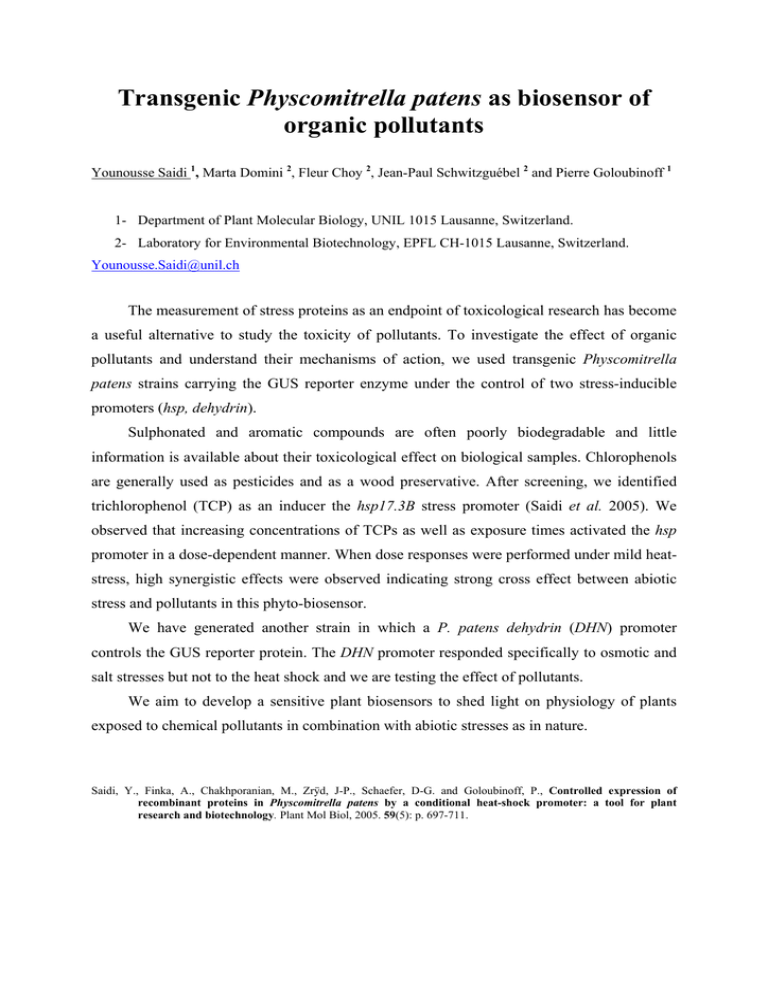
Transgenic Physcomitrella patens as biosensor of organic pollutants Younousse Saidi 1, Marta Domini 2, Fleur Choy 2, Jean-Paul Schwitzguébel 2 and Pierre Goloubinoff 1 1- Department of Plant Molecular Biology, UNIL 1015 Lausanne, Switzerland. 2- Laboratory for Environmental Biotechnology, EPFL CH-1015 Lausanne, Switzerland. Younousse.Saidi@unil.ch The measurement of stress proteins as an endpoint of toxicological research has become a useful alternative to study the toxicity of pollutants. To investigate the effect of organic pollutants and understand their mechanisms of action, we used transgenic Physcomitrella patens strains carrying the GUS reporter enzyme under the control of two stress-inducible promoters (hsp, dehydrin). Sulphonated and aromatic compounds are often poorly biodegradable and little information is available about their toxicological effect on biological samples. Chlorophenols are generally used as pesticides and as a wood preservative. After screening, we identified trichlorophenol (TCP) as an inducer the hsp17.3B stress promoter (Saidi et al. 2005). We observed that increasing concentrations of TCPs as well as exposure times activated the hsp promoter in a dose-dependent manner. When dose responses were performed under mild heatstress, high synergistic effects were observed indicating strong cross effect between abiotic stress and pollutants in this phyto-biosensor. We have generated another strain in which a P. patens dehydrin (DHN) promoter controls the GUS reporter protein. The DHN promoter responded specifically to osmotic and salt stresses but not to the heat shock and we are testing the effect of pollutants. We aim to develop a sensitive plant biosensors to shed light on physiology of plants exposed to chemical pollutants in combination with abiotic stresses as in nature. Saidi, Y., Finka, A., Chakhporanian, M., Zrÿd, J-P., Schaefer, D-G. and Goloubinoff, P., Controlled expression of recombinant proteins in Physcomitrella patens by a conditional heat-shock promoter: a tool for plant research and biotechnology. Plant Mol Biol, 2005. 59(5): p. 697-711.
